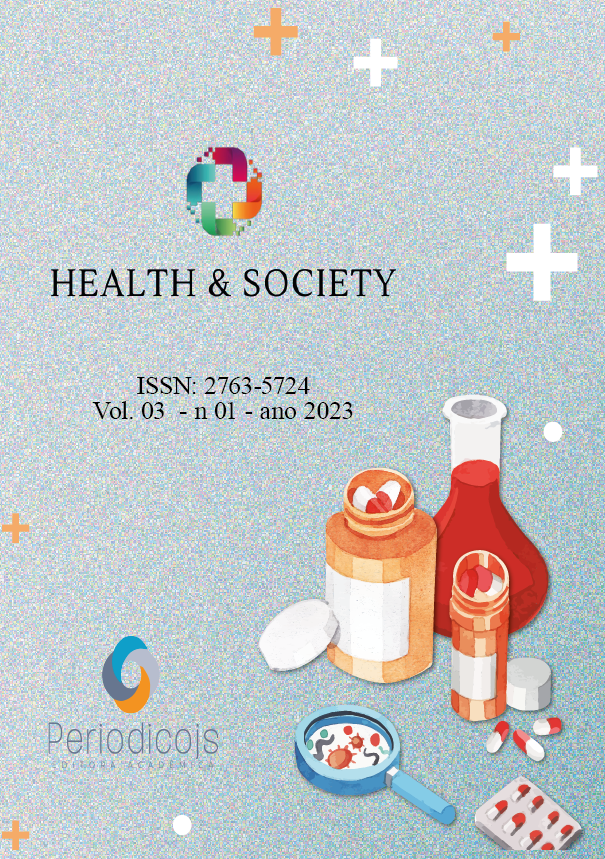Resumo
This article aims to describe the physiotherapeutic techniques applied in the intervention of the disease, to raise socioeconomic aspects of the relatives of children with hydrocephalus, and to classify the profile and lifestyle of these children after contact with the physiotherapist. Therefore, the methodology is a qualitative research, based on bibliographic surveys contained in databases. It is concluded that physiotherapy does not act in the treatment of the disease itself, but in the sensory and motor dysfunctions that the disease causes, and from this, the physiotherapy applications for the habilitation or rehabilitation of the functions interrupted by hydrocephalus can be in different ways, depending on the degree of evolution of damage caused by hydrocephalus. Thus, the earlier the diagnosis is made and the physiotherapeutic treatments are started, the greater the gain in motor function and functional independence. It is also worth mentioning that the family’s participation and their economic conditions can directly influence the child’s development and recovery.
Referências
ALBUES, Poliani Ferreira. Importância da Fisioterapia em Crianças com Diagnótico de Hidrocefalia: Atuação no retardo do desenvolvimento neuropsicomotor. Universidade de Cuiabá – UNIC, 2018.
ALMEIDA, Gabriel Peixoto Leão et al. Influência da fisioterapia no desenvolvimento neuropsicomotor de paciente com hidrocefalia. Revista Brasileira em Promoção da Saúde, v. 22, n. 3, p. 199-206, 2012. Disponível em: <http://periodicos.unifor.br/RBPS/article/view/561>. Acesso em 29 nov. 2018.
BILATE, Ivone Carvalho. Análise da motricidade das crianças com diagnóstico de hidrocefalia: um estudo realizado na enfermaria pediátrica do Hospital Geral De Vitória Da Conquista/BA. Ciência & Desenvolvimento-Revista Eletrônica da FAINOR, v. 7, n. 2, 2014. Disponível em: <http://srv02.fainor.com.br/revista237/index.php/memorias/article/view/305>. Acesso em 28 nov. 2018.
DE ABREU, Myrna Amélia Lobão Texeira; COSTA, Isabel Cristina. Utilização da Escala de Denver do Desenvolvimento Neuropsicomotor Como Parâmetro Evolutivo na Atuação do Fisioterapeuta de um Paciente com Malformação de arnold-chiari i.
DE ANDRADE, Mariana Beserra; DUPAS, Giselle; WERNET, Monika. Convivendo com a criança com hidrocefalia: experiência da família. Pg 438 a 440. Ciência, Cuidado e Saúde, v. 8, n. 3, p. 436-443, 2009.
KNABBEN, Rodrigo José ; SANTI Fábio Rosendo da Silva. Tratamento fisioterapêutico em paciente com quadro de hidrocefalia no pós-operatório de ressecção de tumor cerebelar: Um relato de caso. Revista Digital - Buenos Aires - Año 13 - N° 126 - Noviembre de 2008. Disponível em: <http://www.efdeportes.com/efd126/paciente-com-quadro-de- hidrocefalia.htm>. Acesso em 28 nov. 2018.
MELO, Fláviane Rezende; ALVES, Débora Almeida Galdino; LEITE, JMR. Benefícios da hidroterapia para espasticidade em uma criança com hidrocefalia. Pg, 419. Revista Neurociências, v. 20, n. 3, p. 415-42, 2012. Acesso em 29 nov. 2018
OLIVEIRA, Débora Moura da Paixão et al. Caracterização do cuidador familiar em relação ao conhecimento sobre hidrocefalia.pg 38. 2009. Disponível em: <https://ri.ufs.br/handle/riufs/3677>. Acesso em 29 nov. 2018.
PINTO, Ana Paula Suesco. Neurociência na hidrocefalia: aspectos cognitivos da neurociência para portadores de hidrocefalia. 2015. Disponível em: <https://www.linkedin.com/pulse/neuroci%C3%AAncia-na-hidrocefalia-e-os-aspectos- cognitivos-anna-paola?trk=prof-post>. Acesso em: 12 nov. 2018

Este trabalho está licenciado sob uma licença Creative Commons Attribution 4.0 International License.
Copyright (c) 2023 Cíntia Da Silva Araújo, Sara Nayelle Ferreira De Sousa , Elen Silva de Oliveira, Clevane Maia Souza, Shirlei Oliveira Dantas, Uilma Sacramento Santana, Maria Luísa Sousa Braga, Fernanda Dos Santos Moreira, Maycon Carvalho Andrade, Anaildes Silva Bena, Luciana Cavalcante, Letícia Beatriz Cavalcanti Da Costa, Larah Domingos Alves Santana, Ellen Polyana Carvalho Farias





